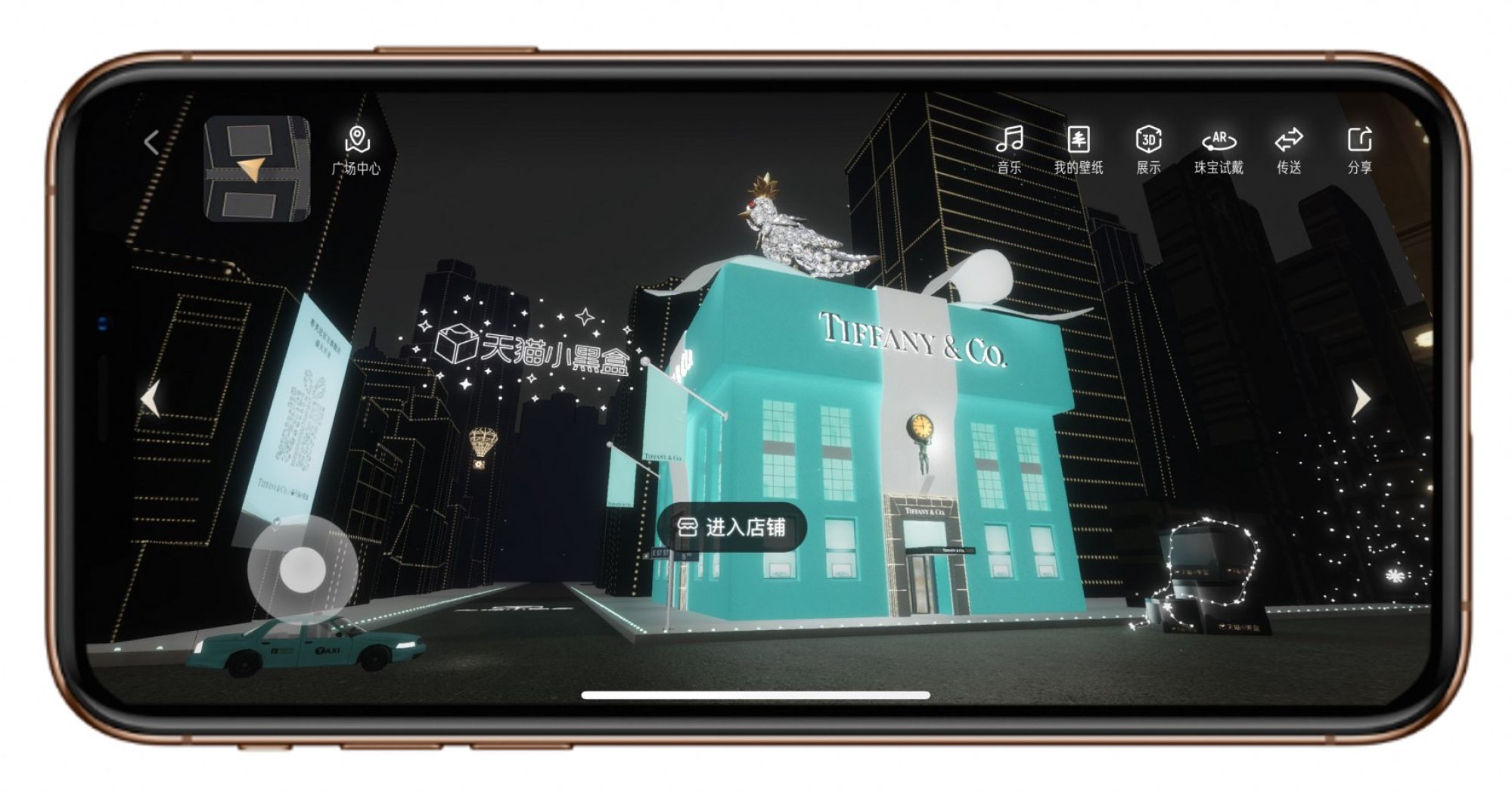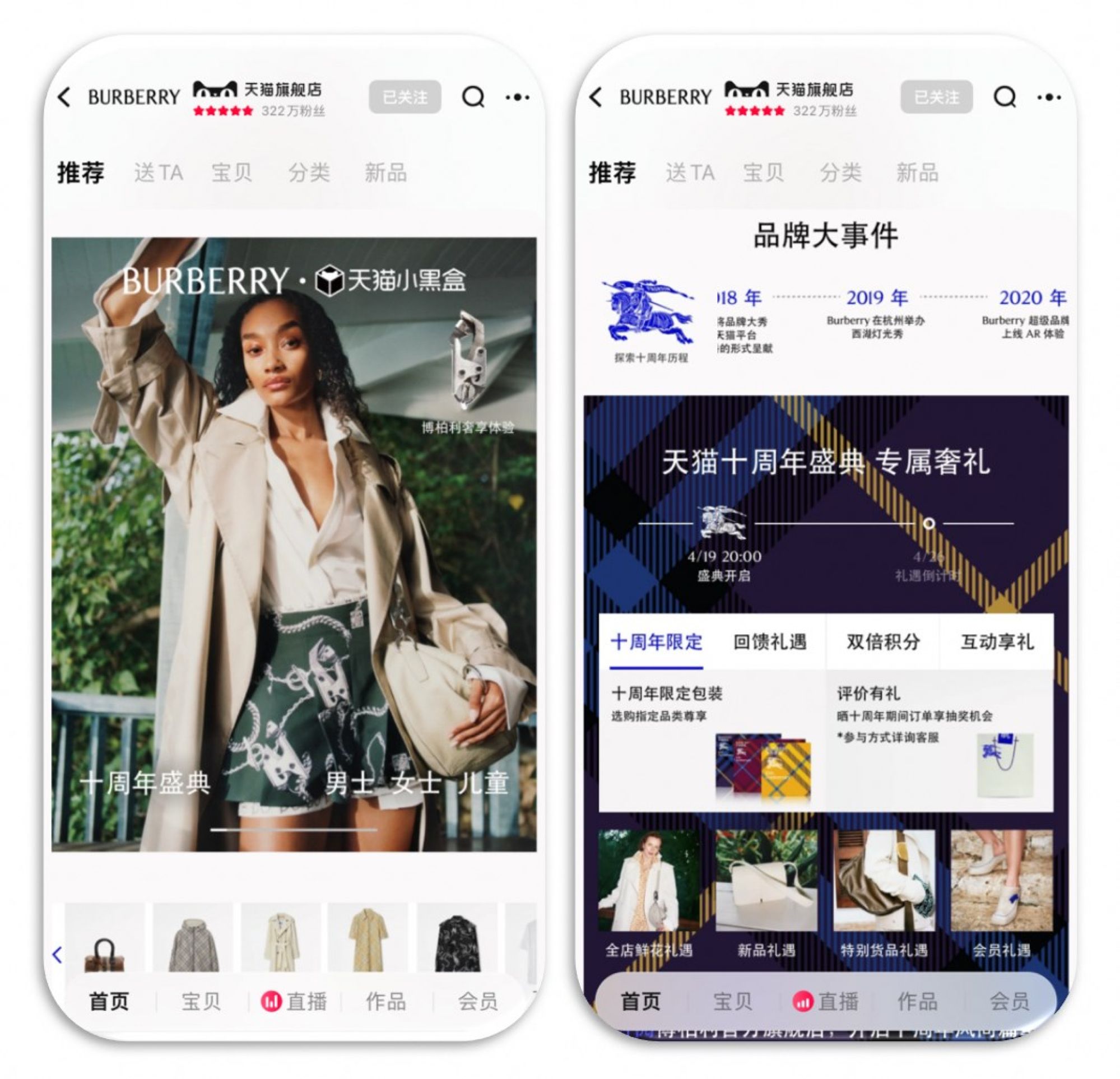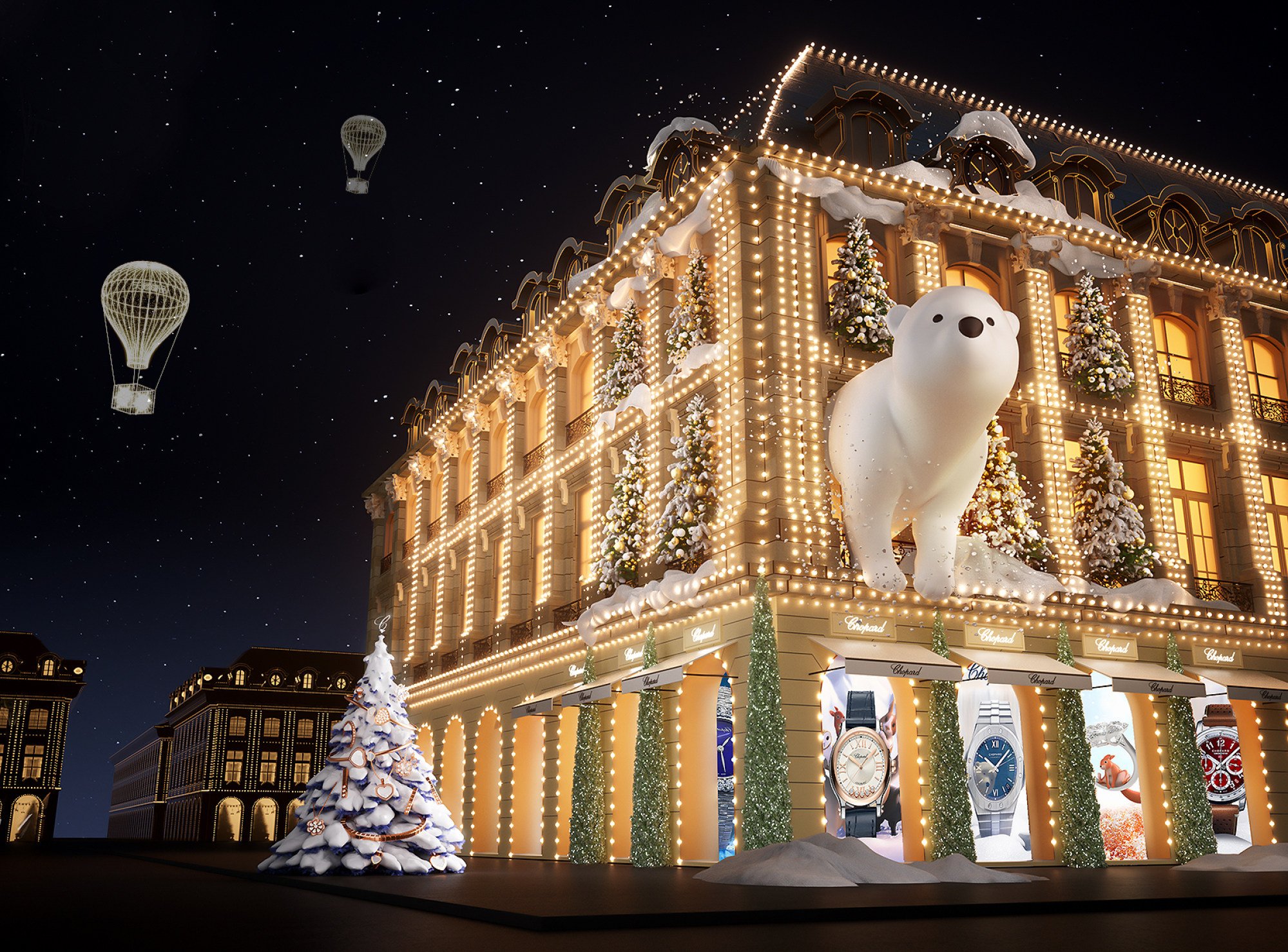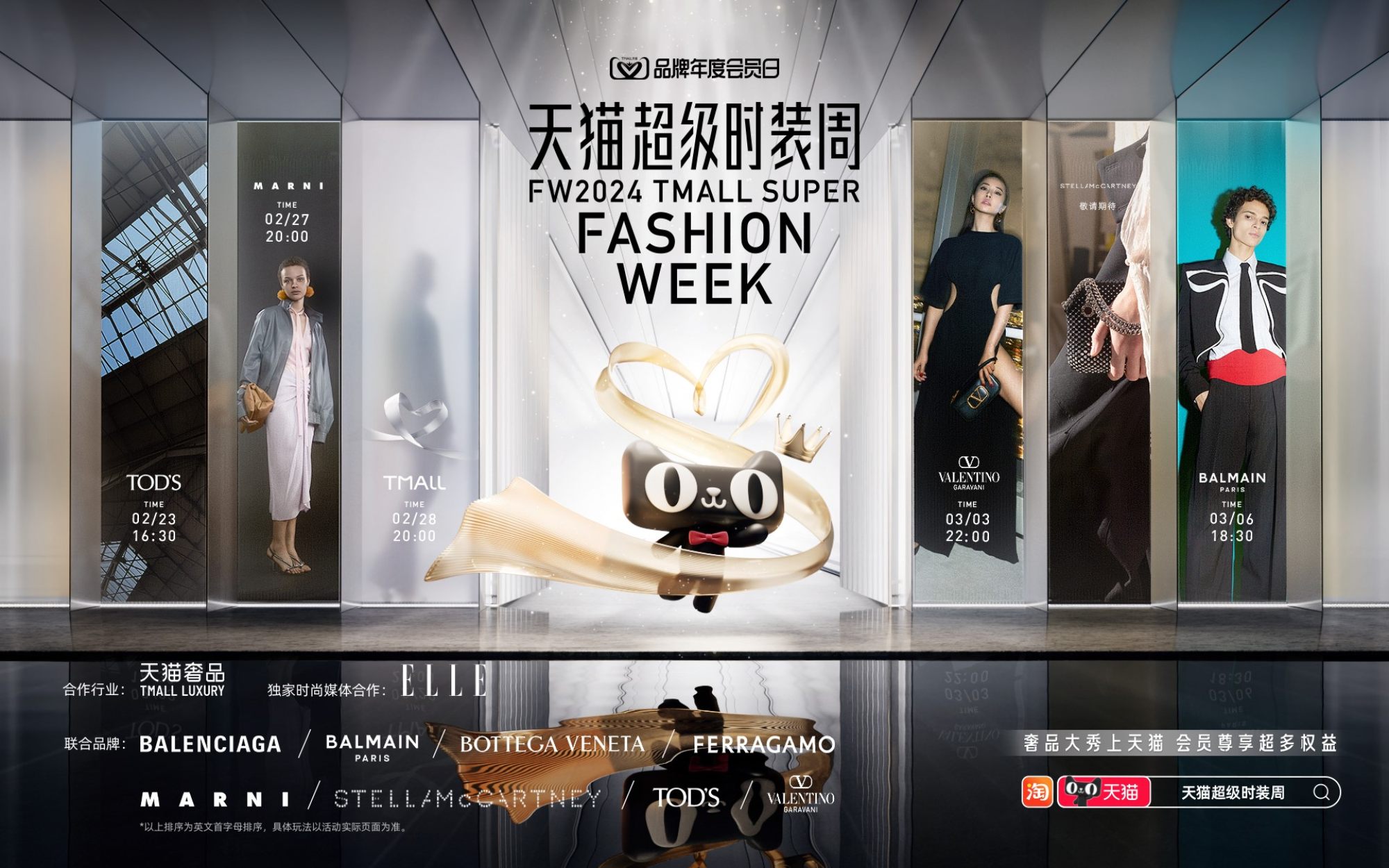
How Alibaba is leading the evolution of online luxury shopping
- Alibaba’s Tmall Luxury Pavilion is the first e-commerce platform to collaborate with the world’s largest luxury groups, including LVMH, Richemont and Kering
- Thanks to the implementation of new digital strategies, the platform attracts and retains high-spending consumers who have dramatically uplifted sales for brands
Each spring, luxury watch collectors flock to Geneva for the Watches and Wonders fair, where they can glimpse the newest releases from venerated watchmakers such as Van Cleef & Arpels, Cartier, IWC, Zenith and Chopard. But this year, Chinese consumers did not have to fly anywhere to see the newest releases – they simply scrolled through the Taobao app.
This is the result of an ongoing partnership between the Chinese e-commerce platform Tmall Luxury Pavilion and prestigious luxury watch brands participating in Watches and Wonders.
It allowed users to view and compare the latest watch creations, and shop directly from the offerings in Geneva, with 50 releases available for immediate purchase or pre-order during the fair from April 9 to 15.
They could also watch celebrity live streams, win limited-edition gifts and participate in other VIP experiences that had previously been offline only – all through their phones.

Digitised experiences such as this are not limited to special events – they are the bread and butter of Tmall Luxury Pavilion. With European watch and jewellery houses looking to the Chinese luxury market to gain revenue and long-term opportunities, Tmall’s sophisticated digital technologies are set to help them stay ahead.
The Post spoke to Janet Wang, general manager of Tmall Luxury Pavilion under Alibaba’s Taobao and Tmall Group, to learn the ways in which the platform is setting the trends for capturing and retaining digital-savvy consumers.
1. Rapidly growing portfolio of high-end brands
In the last quarter, the LVMH-owned brands Tiffany & Co, Chaumet and Hublot all launched online stores on Tmall Luxury Pavilion, joining “all of LVMH’s core jewellery and watch brands”, according to Wang, alongside the more than 200 premium and luxury brands already being hosted on the platform.
These include fellow LVMH brands Bulgari, Fred, Tag Heuer and Zenith, which followed partnerships with various Kering and Richemont brands that date back to 2018.

“It’s fair to say that we have established the richest online hard luxury retail ecosystem in China,” says Wang, who has more than 15 years of experience in digital business transformation and has been leading the rapid growth of Tmall Luxury Pavilion since 2021.
To have an edge in the competitive world of e-commerce, luxury brands from around the world are leveraging Tmall Luxury Pavilion’s distinctive mix of offline and online offerings to capture the attention of Chinese shoppers.
Tmall Luxury Pavilion is the first Chinese platform that has hosted all five of the major luxury groups in one e-commerce destination. It has also become the platform of choice among international brands entering the Chinese market for the first time, such as the Italian luxury shoe brand Casadei and niche lighting maker Flos.
In April, the Burberry flagship store on Tmall celebrated its 10th anniversary. Back in 2014, the renowned British fashion house became the first luxury brand to enter Tmall, and it has since amassed 3.22 million fans on the platform. Burberry serves as a prime example of a brand that fully utilises Tmall’s capabilities to continuously innovate digitally while also engaging with consumers.

“Brands will focus on whether the platform can contribute to business expansion and nurture a sustainable customer community over the long term,” Wang notes. She points to Chaumet recently presenting an exclusive global launch of its “Bee My Love” rose gold and pink sapphire necklace on Tmall Luxury Pavilion, with transactions from members accounting for more than 90 per cent of the online shop’s total sales in its initial opening period from January this year.
Chaumet is also now able to reach previously untapped customers in third- and fourth-tier mainland Chinese cities where it had no physical store presence, thereby demonstrating the power of Tmall Luxury Pavilion’s reach and vast user base.
2. Focusing on innovative digital features and services
Wang says that through years of development and business experience, “Tmall Luxury Pavilion’s enormous consumer base and unique platform characteristics endow it with operational capabilities not available from just social media or bricks-and-mortar stores.”
Consumers – particularly the younger ones who grew up surrounded by technology – are actively engaging with brands in the digital realm, paying extra attention to those providing an emotional connection, and they are also very interested in jewellery and watches that maintain or increase in value.
“This is a huge opportunity to deliver brand value and achieve long-term growth,” Wang says.
Tmall Luxury Pavilion is able to rapidly and precisely turn consumer trends into actionable insights for brands, which allows them to quickly tap into new digital solutions that enhance the shopping experience. These range from interactions with metaverse idols to virtual try-on services powered by augmented reality (AR) and one-on-one live-stream consultations.
“Tmall Luxury Pavilion has become a multi-touchpoint medium that is able to precisely push product recommendations and form a dialogue with consumers,” Wang says, adding that this is exactly what brands are looking for in order to gain new customers. “The dissemination of brand culture through the platform’s innovative technologies is of utmost importance.”

With its vast range of luxury brands gathered in one place, the platform could be compared to Place Vendôme in Paris, which is famous for its collection of high-end jewellery stores. In fact, ahead of last year’s Christmas and New Year holidays, Tmall Luxury Pavilion built an immersive digital re-creation of Place Vendôme that showcased brands including Boucheron, Graff and Jaeger-LeCoultre. The AR experience received more than 500,000 visits online.
3. Retaining brand followers and attracting ‘VICs’
Tmall also stands out with its celebrity ambassador broadcasts and appearances, which are highly effective at streamlining an advanced shopping experience and attracting dramatic engagement spikes and fan followings. These online events are often accompanied by giveaways of limited-edition gifts.
Tmall effectively manages the customer relationship for its brand partners. Wang explains: “Brands can leverage the comprehensive capabilities of Tmall Luxury Pavilion to magnify the potential of their own products and marketing strategies, achieved through communication with consumers and completing the business loop.”
For example, Hublot’s recently opened Tmall flagship store teased the watchmaker’s new brand ambassador – Chinese actor and model Yu Shi, also known as Yosh Yu – by displaying his silhouette starting five days ahead of the official announcement on April 2.
“This alone attracted thousands of brand customers to schedule an appointment through Tmall for the ambassador reveal,” Wang says. “On April 2, the revisit rate reached 80 per cent, helping the brand retain and activate a precise user base,” which Tmall calls its “Very Important Customers”, or VICs.
Nurturing these loyal, digital-first users is paramount, according to Wang. “Compared to average consumers, they have stronger purchasing power, higher loyalty and engage more frequently in online interactions such as revisiting, bookmarking and adding items to the cart, and they also have a higher likelihood of repeat purchasing.”

Live streams are now being favoured by fashion brands for global events, as they have proven to achieve impressive levels of consumer reach. The Paris Fashion Week show for Balenciaga’s fall 2024 collection garnered 1.4 million views on Tmall, which Wang notes is a record high. She adds: “During Fashion Week, the number of followers and members of the brand stores increased more than tenfold compared to regular days.”
4. Continually advancing the online shopping experience
As consumer needs and demands become more diverse and complex, there is greater emphasis placed on experiential consumption, according to Wang, who notes: “The penetration rate of consumers’ online spending is gradually increasing.”
She adds that in the near term for Tmall Luxury Pavilion, the aim is to continue providing consumers with “an online shopping experience that is on par with, or even better than, offline”. Strategies include offering online reservations for offline exhibitions, as well as online replications of in-person services such as one-on-one consulting.
Wang says that in order to ensure it continues attracting high-quality brand followers and VICs, Tmall Luxury Pavilion must explore every possible future innovation that can help Chinese consumers “gain a deeper understanding of luxury brands” while also leveraging data and technology to “help brands identify trends and growth opportunities”.
Therefore, China’s online shoppers can expect to see Tmall Luxury Pavilion not only introduce even more new brands and products, but also implement new business formats such as boutique buyer stores and add further innovative projects into the incubation pipeline.
With these ongoing advancements, Tmall Luxury Pavilion remains committed to captivating a highly discerning community of shoppers, and ensuring an immersive and insightful luxury journey together with its brand partners.
Tmall and Tmall Luxury Pavilion are commercial initiatives of Alibaba Group Holding, which also owns the South China Morning Post.

